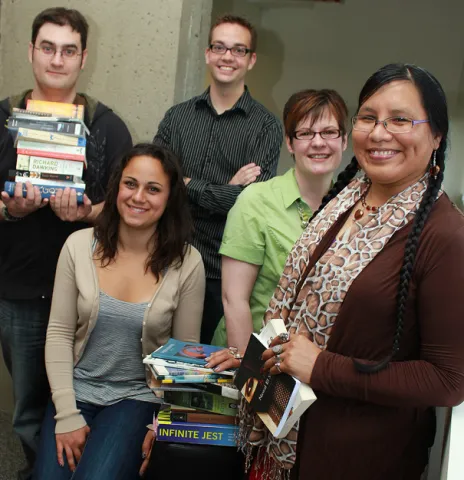Why Study English?

Owen Quance, known on campus for his work with community radio, sees English in terms of vast cultural identifications: "stories are a large part of how we establish our identity," he says, "as people, countries, and as a species." They help us connect with "those living in the past" and "help us to explore how we see ourselves now."
Creative writer Shelly Eli also appreciates the discipline's broad reach: "My view of the world around me has been impacted," she says, both in the way I "read books" and in the way "I watch movies and T.V. I am no longer a passive reader. I find I look beyond the surface to find the deeper messages in these daily media."
Raquel Khoury affirms the relevance of English studies from a different kind of global perspective: "I plan on teaching English overseas," Khoury remarks. "This degree is my ticket around the world. And if that plan falls through, I will have this great degree from U of L, which has an amazing reputation all over Canada."
English-Education majors Chris Wallace and Alisha Sims also display a passion for the subject, which they hope to share with their own students someday. Wallace enjoys "the fun debates, insightful reflections and new perspectives" that emerge through discussions in English.
Likewise, Sims sees the discipline's importance not only in terms of general literacy, which is "important to success," but also in terms of cultural vitality: "I want to be able to give students this tool while hopefully instilling a love for great literature," she says.
Pictured: (L to R) Owen Quance, Raquel Khoury, Chris Wallace, Alisha Sims and Shelly Eli.
